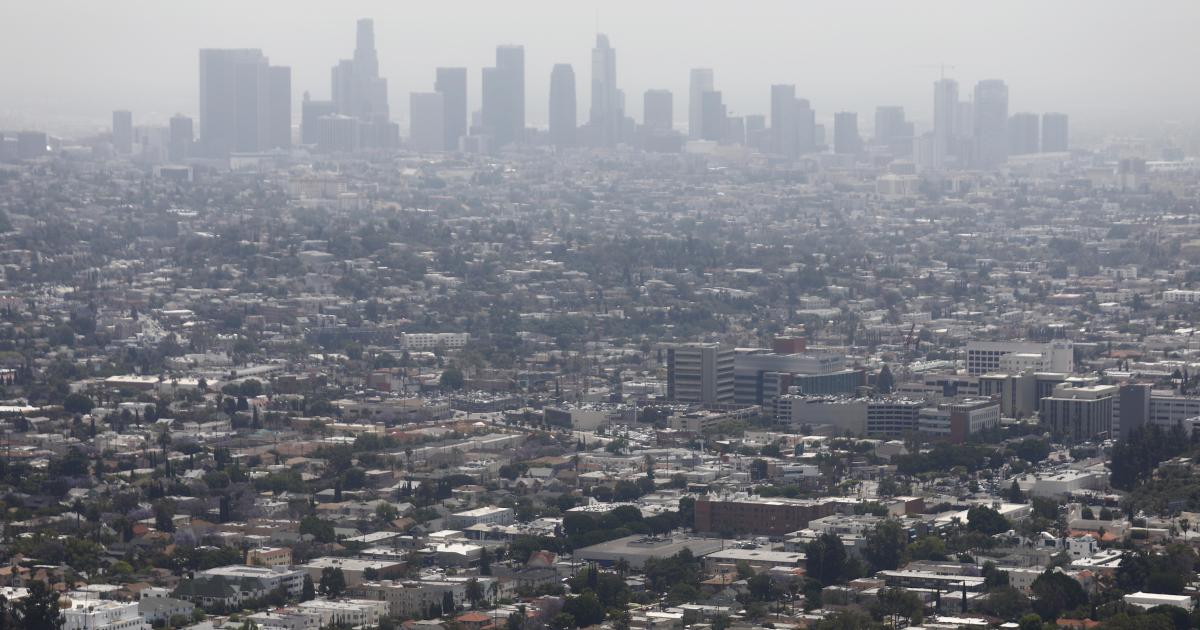Delta variant is weighing on U.S. growth, economists say
The nation's business economists now expect slower economic growth this year due to the widespread Delta variant of COVID-19, while also saying the economy could improve more quickly next year as vaccinations become more accepted.
In a survey released Monday, the National Association of Business Economists (NABE) found that its panel now expects full-year economic growth of 5.6%, down from a forecast for 6.7% growth in NABE's previous survey in May. However, economists raised their forecast for 2022 economic growth to 3.5% from a previous outlook of 2.8%.
The NABE's findings are based on the responses of 47 forecasters earlier this month.
"NABE Outlook survey panelists have moderated their expectations about the prospects for economic growth in 2021 since May," said NABE President-elect David Altig, executive vice president and director of research, Federal Reserve Bank of Atlanta.
Inflation should remain at elevated levels through the fourth quarter before moderating next year, the panelists predict. Consumers have faced sharply higher prices for goods and services this year as businesses deal with an unprecedented jump in wholesale prices.
While NABE's survey predicts inflation of 5.1% this year, economists appear to believe the higher prices will mostly prove to be temporary. Inflation is expected to moderate next year to a level of 2.4%, according to the group.
"Inflation expectations have moved up significantly from those in the May 2021 survey," added Survey Chair Holly Wade, executive director, NFIB Research Center, "but panelists anticipate inflation will ease in 2022.
Consumer prices over the past 12 months have risen 4.2% — the biggest 12-month increase since the 4.5% seen in January 1991. Consumer spending was down sharply from a 1.1% rise in June, the Commerce Department reported in August, which experts said was the result of the Delta variant of the coronavirus.
Signs of a slowdown
The coronavirus remains the dominant variable around how the U.S. economy will do for the rest of the year and into 2022, according to NABE. Roughly two-thirds of those surveyed see a potential vaccine-resistant version of the coronavirus being the biggest risk to the economy. A faster rollout of vaccines, however, would provide the biggest upside to the economy this year and next year, roughly half of the panelists said.
A report last week from the Department of Labor showed the number of Americans applying for weekly unemployment aid rose for a second straight week to 351,000, a sign the job market is facing headwinds as the U.S. grapples with a surge in COVID-19 cases. Job growth last month also fell far short of forecasts as the Delta variant spread, while many small businesses have had to reinstate COVID-19 rules.
NABE's panelists were split on the issue of there being a potential labor shortage. About 44% of panelists said their companies were not experiencing any labor shortages or issues, while 35% said they were seeing a labor shortage. One in five panelists did not know or was unsure.
U.S. businesses continue to struggle to hire workers, especially lower-paid employees. Chipotle Mexican Grill in June boosted prices as much as 4% across its menu to help offset higher costs. The restaurant chain in May raised its average hourly pay to $15 for 100,000 workers.



